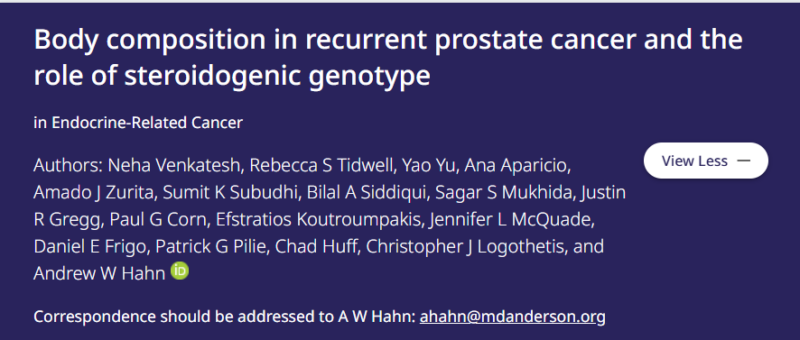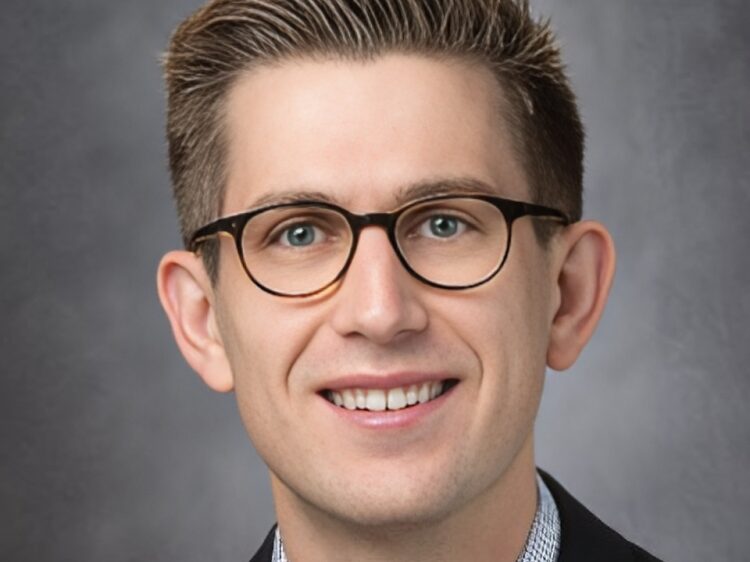Andy Hahn, Genitourinary Medical Oncologist at MD Anderson Cancer Centre, shared on X about recent paper by him as co-author, titled “Body composition in recurrent prostate cancer and the role of steroidogenic genotype” published on Endocrine-Related Cancer.
Authors: Neha Venkatesh, Rebecca S. Tidwell, Yao Yu, Ana Aparicio, Amado J. Zurita, Sumit K. Subudhi, Bilal A. Siddiqui, Sagar S. Mukhida, Justin R. Gregg, Paul G. Corn, Efstratios Koutroumpakis, Jennifer L. McQuade, Daniel E. Frigo, Patrick G. Pilie, Chad Huff, Christopher J. Logothetis, and Andrew W. Hahn

“Here’s our latest paper evaluating the genetic and clinical determinants of body composition toxicity in men treated with ADT with and without abiraterone in Endocrine-Related Cancer.
In our Prostate Cancer and Prostatic Diseases paper, inherited variants in steroidogenic genes were associated with differences in body composition after ADT. Since it was a 1x measure, we didn’t know if these variants were associated with baseline differences or only appeared after exposure to HT.
In our new study, body composition was measured before and after 8 months of ADT with and without AAP in men with BCR prostate cancer. HT was associated with 7% loss of skeletal muscle mass and a 12% increase in subcutaneous fat. Abiraterone was associated with greater loss of muscle.
We evaluated the association between genotype in 6 steroidogenic SNPs, intrinsic body composition, and percent change after HT. We found HSD3B1 rs1047303 was associated with an intrinsic difference in visceral fat and SRD5A2 was associated a difference in skeletal muscle toxicity.
Last, we wanted to know if CV risk factors were associated with differential body composition toxicity with HT. Diabetes was the only CV risk factor significantly associated with a difference in percent change in body composition.
The aspirational goal of these body composition studies is to one day prospectively identify the men most vulnerable to harm from HT and tailor treatment recommendations accordingly.”
Neha Venkatesh, Internal Medicine Resident at BCM IM Residency, shared this post on X adding:
“Thanks to the best mentor Andy Hahn whose guidance has been instrumental in learning the research process and tailored to my goals and growth!”


